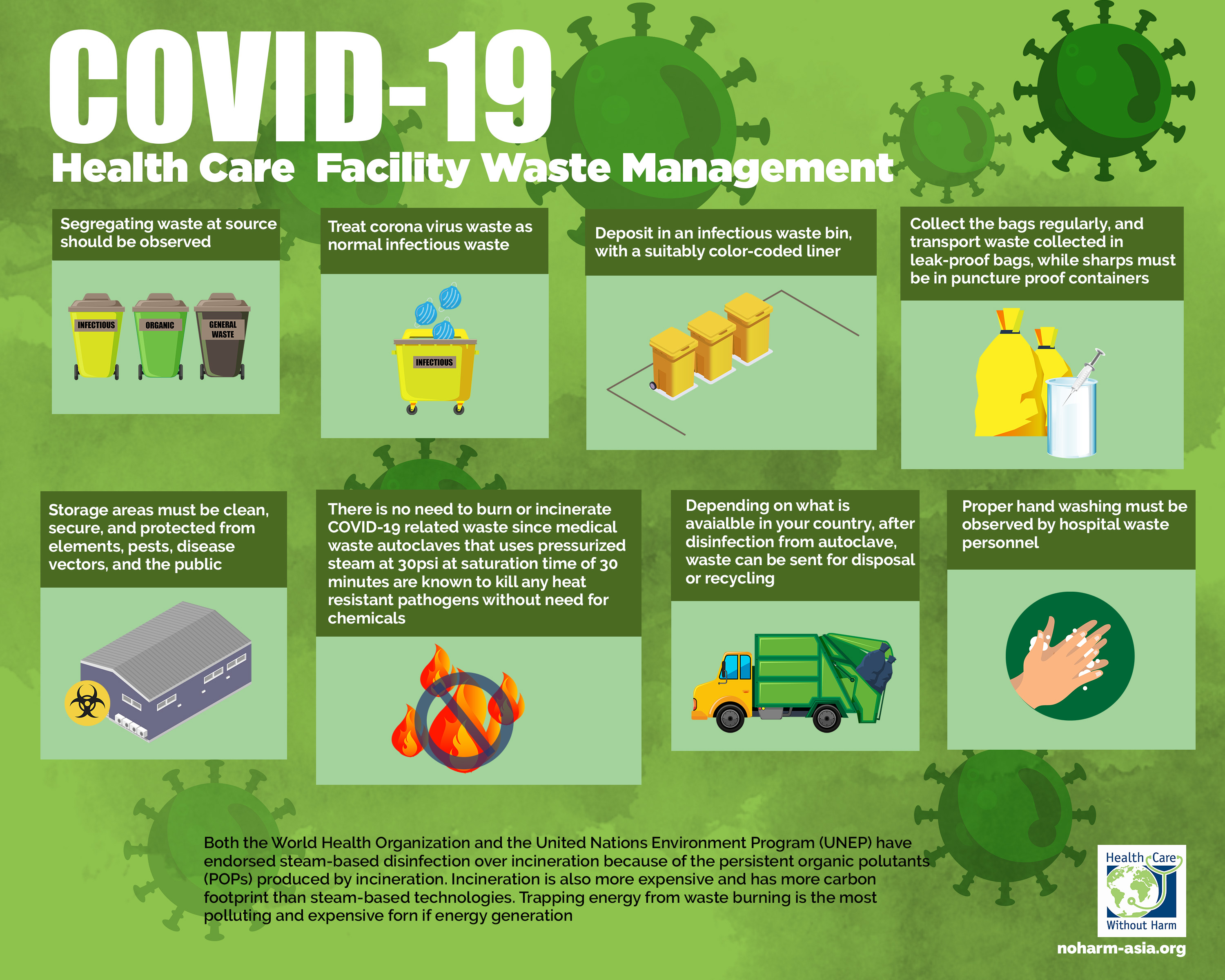OPINION-EDITORIAL (Philippines) | Managing COVID-19 - Related Health Care Waste
Article by Former Health Secretary Esperanza Cabral and Paeng Lopez
In our continuing effort to support all initiatives to address the challenges that COVID-19 is imposing upon us, Health Care Without Harm South East Asia would like to share with our health sector partners, allies, as well as frontline health communities the following recommendations on managing COVID-19-related waste such as mask and PPEs.
It is with deep gratitude and profound respect to our frontline health workers that we are sharing these timely recommendations in order to ensure that the noble work they are doing at the frontlines is not impeded and breached, thus made worse, by mismanaged COVID-19-related waste such as masks and PPEs.

As COVID-19 is a new virus, it should be pointed out that there is no established waste treatment
process yet for waste generated in response to the virus. Nonetheless, according to WHO, any
health facility exercising best practice for infectious waste will also be able to manage waste
potentially infected with COVID-19. Yet special attention may still be given to COVID-19 related waste such as PPEs by setting-up a distinct bin for these types of waste which then gets double bagged for safe transport.
Segregating waste at source should always be observed. There is no need to burn or incinerate Covid1-19 related waste since medical waste autoclaves that use pressurized steam at 30psi at saturation time of 30 minutes are known to kill any heat resistant pathogens without need for use of any chemicals. Temperature up to 135°C or higher achieves microbial inactivation at 99.9% kill rate on the most heat resistant pathogens known to science including Baccillus Stearothermophilus
Once disinfected in an autoclave, COVID-19 related waste, like any other hospital solid waste that underwent autoclaving, can then be treated as regular municipal waste. All technologies, whether autoclave or microwave should be validated and regularly tested.
Incinerators as well as incinerators-in-disguise like pyroclaves, gasification, pyrolysis, plasma arc, apart from being overly expensive, produce deadly dioxins and furans that further harm people’s health instead of protecting it.
After disinfection from autoclave, waste can be sent for disposal or recycling. Any PPE that
could potentially be reused should be cut to pieces. For example, masks should be cut since
there are reports that they are being illicitly resold. Advise every staff to do this to PPEs they
individually use before discarding them into appropriate bins.
Because COVID-19 virus survives briefly in tropical temperatures, as an additional safety measure, it is recommended to label every bag of PPE waste with their collection dates and have them stored in waste holding areas for at least three days to ensure that no virus survives in the collected items. See to it that they are in leakproof, puncture proof containers, and that storage areas are clean, secure, and protected from the elements, pests and disease vectors.
Finally, we can never over emphasize the importance of proper hand washing, especially for hospital personnel handling waste. Together with appropriate PPEs, washing hands make a formidable defence against the virus. Since we know that the COVID-19 is coated in lipid that dissolves in soap, washing hands properly with soap and water remains to be the simplest and most consistent way of preventing the spread or getting infected by the virus.###
______________________
MEDIA LANDINGS:
